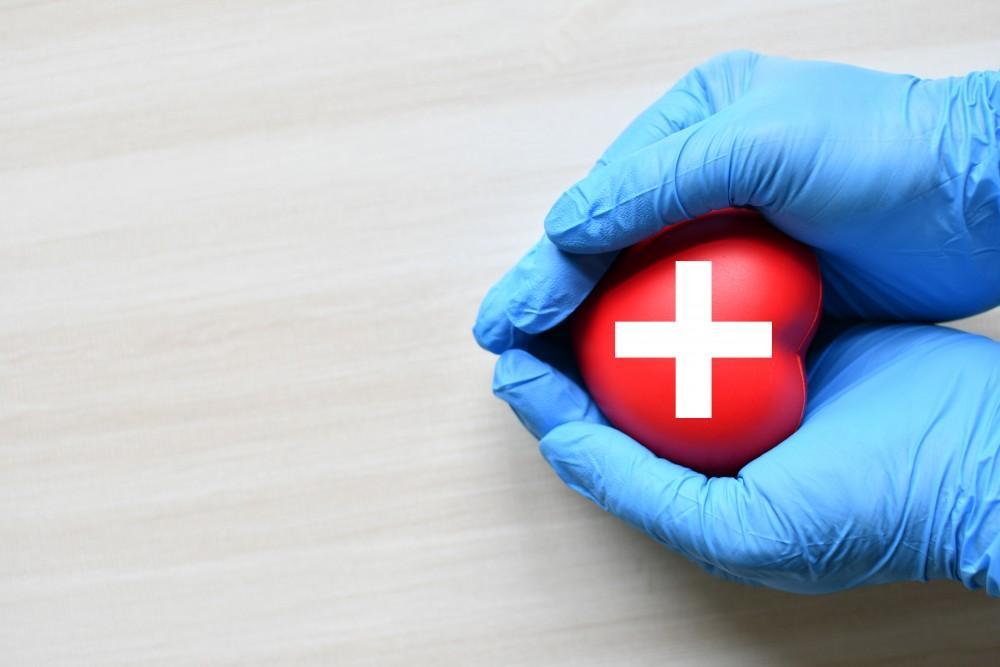Most people think about COVID-19 as a respiratory disease, but the fact is, it can take a big toll on your heart health, too — even if you don’t have existing heart disease and even if your COVID-19 infection was mild. Understanding the relationship between COVID-19 infection and your heart health is important for recognizing symptoms that need prompt attention and evaluation.
COVID-19 and cardiovascular health
The first thing to know is that COVID-19 seems to affect the cardiovascular system in different ways, which means the risk to your heart health can be magnified. It’s also important to know that heart symptoms don’t always appear right after (or during) an infection. In fact, research shows the heart can still suffer a year or more after a COVID-19 infection.
The COVID-19 virus causes widespread inflammation, a major contributor to many of the long-term and acute health problems associated with the infection. Inflammation is part of your body’s natural defense mechanism against viruses and other germs.
Although a little inflammation can be good, the inflammation in COVID-19 is often severe, setting off a chain reaction that can lead to both acute (immediate) and long-term heart-related problems. Here are five ways excessive inflammation and other COVID-19 “side effects” could affect your heart health.
Myocarditis and pericarditis
Myocarditis is inflammation of the heart muscle, while pericarditis is inflammation of the outer tissue of the heart. COVID-19 can trigger both of these serious heart conditions. Inflammation can happen as a result of a direct viral attack on your heart or as part of the extreme immune system response.
Arrhythmia
Your heart beats when the muscle receives electrical impulses. If COVID-19 causes your heart to become stressed or inflamed, those signals can be interrupted, resulting in abnormal heart rhythms. Though some rhythm disturbances are temporary and mild, others can significantly increase your risks of heart attack and stroke.
Stress cardiomyopathy
Cardiomyopathy is a serious heart condition that affects the way your heart pumps blood. When COVID-19 infection affects your heart, your body releases a surge of “stress chemicals” that can stun the heart, leading to problems with the heart’s pumping action.
Blood clots
Inflammation from COVID-19 also affects the lining of your blood vessels (the endothelial tissue), hampering your vessels’ ability to transport blood efficiently. Inflammation inside your blood vessels also increases the risk of blood clots, another effect that can occur following COVID-19 infection.
Ischemia
In addition to blood clots, damaged blood vessels may also lead to ischemia, a condition that happens when tissues and organs don’t receive a steady supply of oxygen-rich blood. Ischemia can lead to heart attacks and other organ dysfunction.
Understand your risks
Obviously, not everyone who becomes infected with the COVID-19 virus goes on to develop a heart problem. Currently, there’s no real way to predict who will have a heart-related issue and who won’t.
What we do know is that if you have any heart-related symptoms, like shortness of breath, persistent fatigue, or chest pain, it’s important to have it evaluated by our team. The one exception: If you’re having significant chest pain or other signs of a heart attack, skip the office visit and call 9-1-1 right away.
During a heart evaluation visit, our team will listen to your heart and possibly prescribe other evaluations, like imaging or stress tests to evaluate how your heart responds to physical activity. We may also take a small sample of your blood to look for signs of heart issues. And of course, our team will work with you to develop a custom treatment plan that’s focused on your heart health and your overall wellness, too.
Don’t ignore heart symptoms
Many heart health symptoms can be subtle, but even the most “minor” symptom can be serious. The sooner you seek medical attention for your heart-related symptoms, the faster you can begin treatment that can help you stay healthy.
If you’ve had COVID-19 and you’re concerned about your heart health — whether or not you’ve been diagnosed with heart disease — we can help. Call 972-295-7017, or book an appointment online with the team at Prime Heart and Vascular today.





